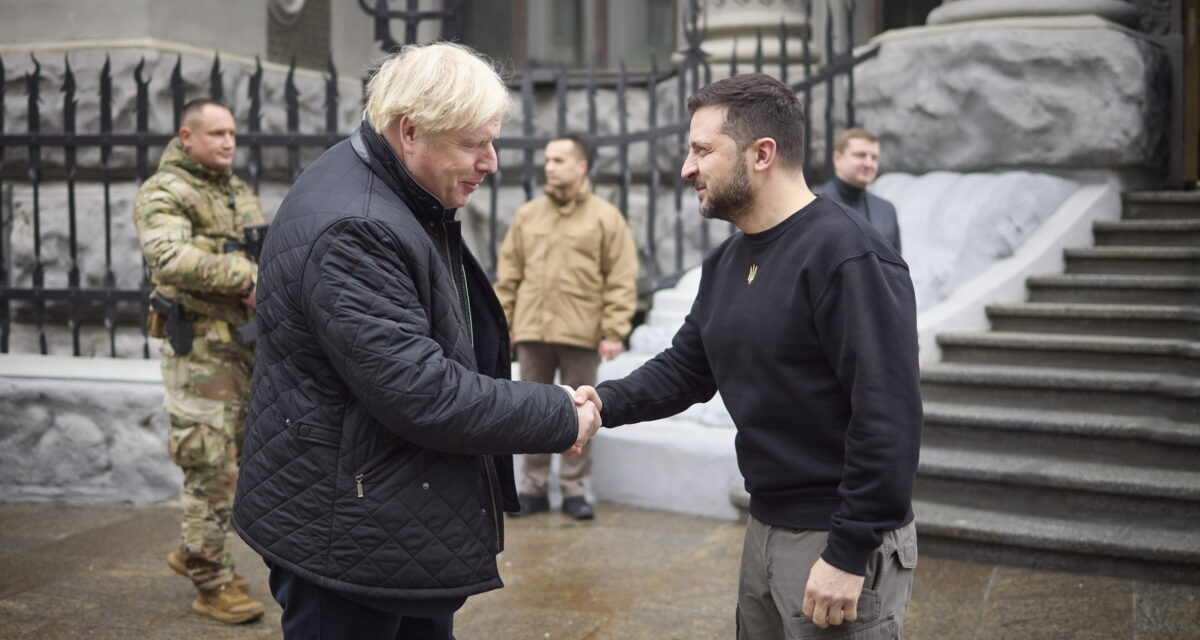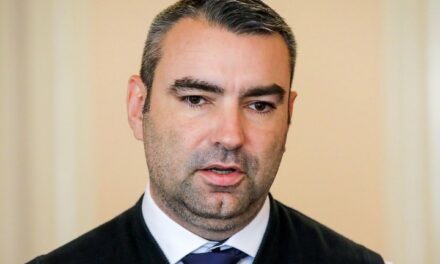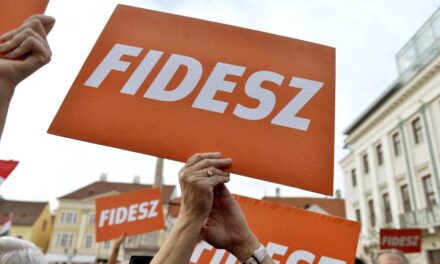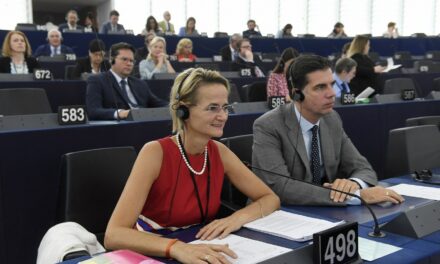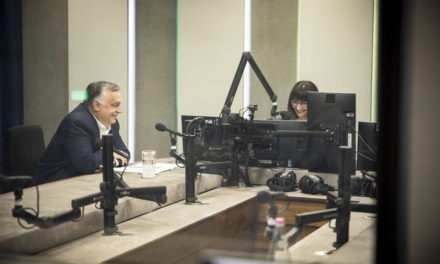"It was the best deal we could have made." Russia and Ukraine almost made peace in April 2022 - the German Die Welt has now published details about the specific content of the peace treaty. This shows that the conditions were acceptable to the Ukrainians as well, and that Russia only opposed Ukraine's NATO membership, not EU membership. The peace plan finally failed after the visit of then British Prime Minister Boris Johnson to Kyiv. The war has been going on for more than two years, and according to estimates, the fighting has claimed almost one million victims.
- The German newspaper Die Welt published the text of the draft peace treaty negotiated between Russia and Ukraine in April 2022.
- According to the document, Russia would have demanded military neutrality from Ukraine, but at the same time it would not have prevented its accession to the EU.
- The positions of the parties were much closer to each other on territorial issues than they are today, however, there were still points of contention regarding the size of the Ukrainian army and political issues.
- Despite the latter, Kiev would have been willing to end the war quickly, but the negotiations were interrupted as a result of the Western message interpreted by former British Prime Minister Boris Johnson.
A few weeks after the outbreak of the Russian-Ukrainian war, the warring parties could have already signed a peace agreement. The conditions for ending the fighting at the time were recorded in a 17-page document, which was made public by the German newspaper Die Welt in the past few days, the Ukrainian newspaper Ukrainska Pravda reported.
As written, Russia and Ukraine would have agreed on the draft in April 2022. Only a few points of unclear questions remained, which were to be discussed personally by Russian President Vladimir Putin and Ukrainian President Volodymyr Zelensky, but the negotiations were interrupted after British Prime Minister Boris Johnson's visit to Kyiv.
Russian conditions: NATO membership no, EU membership yes
The article recalled that after the outbreak of the war, the parties sat down to the negotiating table almost immediately, and based on the draft peace treaty, Ukraine would have undertaken to maintain "permanent neutrality". According to this, he would have renounced membership in all military alliances, including joining NATO. At the same time, Moscow would not have prevented Kyiv from joining the European Union.
Ukraine would have undertaken not to receive, manufacture or acquire nuclear weapons, and not to allow foreign weapons and troops into its territory.
It does not grant access to its military infrastructure to any other country, so it could not hand over its air and seaports to foreign troops. In addition, he should have refrained from military exercises with foreign participation and participation in military conflicts.
On the other hand, the Russian side would have undertaken not to attack Ukraine in the future. As a guarantee of this, Moscow agreed that the five members of the UN Security Council - the United States, the United Kingdom, France, China and Russia - would provide comprehensive security guarantees to Ukraine. If Russia were to attack Ukraine, the other permanent members of the UN Security Council would be obliged to provide assistance to Ukraine within three days in enforcing its right to self-defense enshrined in the UN Charter. The treaty should have been ratified by all signatory states in accordance with international law.
As it was written, the two parties worked out a mechanism that was significantly different from the 1994 Budapest memorandum and would have meant a guarantee for Kiev similar to Article 5 of NATO.
Based on the Budapest agreement, Russia assured Ukraine of its territorial integrity, but the Western states only promised to support Kiev in the event of an attack, but did not undertake any guarantees. According to Die Welt's article, the 2022 peace draft would have required the approval of the USA, the UK, China, and France. In addition, Russia would have included Belarus and Ukraine would have included Turkey.
Territorial issues
According to the 2022 peace treaty, Moscow would have excluded Crimea and the port of Sevastopol from security guarantees. By doing so, Kiev would have practically handed over control over the peninsula to Russia. The agreement on the eastern part of the country did not make it clear which parts of Ukraine Russia wanted for itself. However, according to the article, in the Istanbul communique, Kiev reportedly agreed to exclude parts of Donetsk and Luhansk Oblasts that Russia had already occupied before full-scale war.
However, the Russian delegation insisted that the borders be determined by Putin and Zelensky personally. However, this possibility was rejected by the Ukrainian delegation.
The article highlighted: Russia demanded that in the event of an attack, all guarantor states must agree to activate the assistance mechanism. This would have given Moscow a veto to override the defense mechanism. In addition, Moscow rejected Ukraine's demand that guarantor states could establish a no-fly zone over Ukraine in the event of an attack. As it was written, during the negotiations, Russia indicated that it was ready to withdraw from Ukraine, but not from Crimea and the part of Donbass that was to be excluded from security guarantees.
Demilitarization of Ukraine
The agreement would also have covered the size of the Ukrainian army, which, however, remained unresolved. Kyiv partially responded to Russia's demands for demilitarization.
Moscow demanded that the number of Ukrainian army be reduced to 85,000 soldiers
- there are currently around one million soldiers - Ukraine proposed a staff of 250,000.
The question of the number of military equipment remained another point of contention. Russia demanded that the number of tanks be reduced to 342, while Kiev wanted to keep 800. And Ukraine wanted to reduce the number of armored vehicles to 2,400, while Russia would have allowed 1,029.
There was also a big difference in the number of artillery guns. Moscow would have approved the retention of 519 for Kiev, and Kiev wanted 1,900. The Ukrainians wanted to keep 600 of the 280-kilometer-range, multiple-launch missile systems, whereas the Russians would have approved the retention of only 96 missile systems with a maximum range of 40 kilometers. Russia wanted to reduce the number of mortars to 147 and anti-tank missiles to 333, while Kiev insisted that they be reduced to 1,080 and 2,000, respectively.
In addition, Moscow demanded that Kyiv leave 102 fighter jets and 35 helicopters, while the Ukrainian side insisted on leaving 160 fighter jets and 144 helicopters. In terms of warships, Moscow would have allowed two ships to Kiev, while Ukraine would have kept eight.
The article emphasized that based on the draft treaty, Ukraine and Russia came close to a possible peace treaty to be concluded in April 2022.
Ukraine was in a better position
However, there remained additional Russian demands that the Ukrainians did not agree with. Thus, Russia demanded that Ukraine make Russian its second state language, end mutual sanctions and stop litigation in international courts. Furthermore, Kiev should have banned fascism, Nazism and aggressive nationalism. The German newspaper learned from several diplomats participating in the negotiations that there was great interest in the agreement in the spring of 2022. One Ukrainian diplomat, speaking anonymously, said:
“It was the best deal we could have made.” And according to Die Welt, the 2022 deal still looks favorable after more than two years of full-scale war.
They see the reason for this in the fact that Ukraine has been forced to continuously defend itself on the battlefield in recent months. As it was written, in the spring of 2022 he was in a stronger negotiating position than now. They added: "If the war had ended about two months after it began, countless lives would have been saved."
The German paper also recalled that then British Prime Minister Boris Johnson arrived in Kyiv on April 9, 2022 and said that London would not sign anything with Putin and that Ukraine should continue to fight. Johnson later denied ever saying that. However, there is reason to believe that the proposal to provide security guarantees to Ukraine in agreement with Russia failed at this stage.
The article from Ukrainska Pravda here .
Source: hirado.hu
Cover photo: Kyiv, January 22, 2023.
In this photo released by the Ukrainian presidential press service, Ukrainian President Volodymyr Zelensky (j) welcomes former British Prime Minister Boris Johnson (b, front) in Kyiv on January 22, 2023.
MTI/EPA/Ukraine Presidential Press Service

